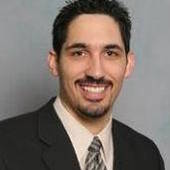In this installment on reverse mortgages we will discuss a few items;
- The expected costs of a reverse mortgage,
- If an appraisal is needed, and
- Who holds title to your home.
Expected Costs of a Reverse Mortgage
The costs of a reverse mortgage are very similar to that of a typical purchase or refinance transaction. Expect to pay an origination fee (often referred to as points), title insurance, government recoding fees, a mortgage insurance fee (for the Home Equity Conversion Mortgage - HECM, FHA's reverse mortgage), and other typical mortgage costs.
The one item that is more costly on a Home Equity Conversion Mortgage (HECM) is the upfront mortgage insurance fee. Upfront does not mean that it has to be paid out-of-pocket. Assuming the home has ample equity in it, all costs can be rolled into a reverse mortgage so that nothing out of pocket is needed. Expect the mortgage insurance premium to be about 2% of the loan amount.
Why Mortgage Insurance is So Important for Reverse Mortgages
The insurance premium you pay on a reverse mortgage is essentially more expensive because it insures something very variable, and that is the future estimated value of your home, and the potential cost that the lender could incur if you "outlive" the value of your home. As discussed in our previous reverse mortgage letter, once you obtain a reverse mortgage you will never have to make another payment on your home as long as you live in your home. This includes a situation where you are receiving monthly payments, and the value of your home is not there to support the payments. You will still be paid every single month. For this reason mortgage insurance is more costly on a reverse mortgage.
 Appraisals
Appraisals
The current and future value of your home is one of the main factors in determining both your qualification for a reverse mortgage, and the amount of equity you can utilize. Since the income you receive from a reverse mortgage is based on your current and future equity, it is necessary to obtain an appraisal to value your home. The value of your home is based upon recent sales of similar homes in your area.
Who Holds Title to the Property?
A common myth is that when you obtain a reverse mortgage you no longer hold title to your property. This is absolutely not true. You hold title to your home just as you would on a regular "forward" mortgage.
We hope you find our future reverse mortgage posts informative as well. Stay tuned.
If you have additional questions or need immediate assistance, feel free to call Steve Kappre on his cell phone at 856-419-3561.
- Reverse Mortgages ~ Who is Eligible? - Part 1
- Reverse Mortgages ~ Payment Options - Part 2
- Reverse Mortgages ~ Expected Costs, Appraisals, and Title - Part 3
- Reverse Mortgages ~ Counseling - Part 4
- Reverse Mortgages ~ Is Reverse Mortgage Income Taxable? - Part 5
- Reverse Mortgages ~ What Happens When My Reverse Mortgage is Due? - Part 6
- Reverse Mortgages ~ Purchase a Home with a Reverse Mortgage - Part 7
|
|
||||||||
|
||||||||
|
|
Steve Kappre is a Certified Mortgage Planner with Treasury Mortgage, a subsidiary of Aurora Financial Group, serving all 50 states, focusing on Gloucester, Camden, and Salem County, NJ. Steve specializes in;
• All areas concerning First-Time buyers; First-Time Buyer mortgages, grants, down payment assistance, tax credits, police and fire loans, rehab loans for first time buyers, and more.
• Reverse Mortgages for seniors age 62 or older.
• Equity Management strategies for high-end homes and high net worth individuals.
Contact Steve Kappre directly at 856-419-3561 or at www.stevekappre.com




Comments (3)Subscribe to CommentsComment